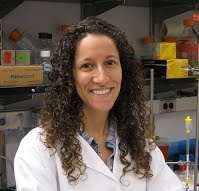Nina Salinger

Nina Salinger Prasanphanich has completed five years of her MD/PhD program at Emory University in Atlanta. For her PhD research, she is working in the lab of Dr. Richard Cummings, focused on the immunogenicity and antigenicity of Schistosoma mansoni carbohydrates. Prasanphanich did her undergraduate studies at Haverford College where she majored in biology. Before beginning her studies at Emory, she worked as a research assistant at the University of Pennsylvania. Prasanphanich grew up in the Philadelphia area and demonstrated an early interest in infectious disease research. She hopes to become an infectious disease physician after graduation and also plans to continue researching neglected tropical diseases. In her spare time, she enjoys singing, playing guitar and participating in outdoor recreation activities.

Project: "The Role of Anti-Glycan Antibodies in Immunity to Schistosomiasis"
August 15 - October 15
Kisumu City, Kenya
What does the Kean Fellowship mean to you?
Receiving this fellowship has been incredibly meaningful to me. Infectious disease research has been my aspiration ever since childhood. As an MD/PhD student in the basic sciences, it has been a privilege to find a project that I am so passionate about scientifically and because I deeply believe in the challenging but crucial long-term goals of developing novel vaccines and diagnostics for schistosomiasis. Because this project has been so motivating, I would like to continue working on neglected tropical diseases. I have been searching for opportunities to make my research training more translational and gain experience in the clinical and scientific aspects of tropical diseases research. I see this fellowship as the perfect opportunity to do so, and, as both the culmination of all my academic efforts thus far, and the launching point for the rest of my career.
What do you anticipate learning?
I anticipate that the knowledge I take away from this experience will be multi-faceted. I imagine that to do quality research involving human populations requires an intimate knowledge of the culture and the challenges facing them. This will be my first experience living abroad and I hope to gain skills in cross-cultural communication and cultural sensitivity. I am also preparing myself to be an effective researcher with a limited amount of time and resources, so that I can learn as much as possible from this unique patient population, which I could not access from the States. This, I expect, will require careful planning, and a good deal of optimism and fortitude in the lab. Perhaps the aspect I look forward to the most will be actually seeing patients with the diseases I have only read about, and learning about diagnosis and treatment in a real-life setting. In a dual degree program, the training path is long and challenging, and having patient-oriented experiences has been crucial to maintaining my internal motivation to accomplish goals that can otherwise seem intangible and unreachable.
What interests you about tropical medicine and what problems are you interested in solving?
I am interested in tropical medicine for two reasons – because I want to address research questions that have the potential to make the greatest impact on the health of the largest number of people possible; and because I find the interplay between host and pathogen fascinating and endlessly complex. Personally, I am most interested in vaccine development for neglected tropical diseases. That most of the NTDs are caused by parasites and, many of them, like schistosomiasis, by multicellular organisms, means that this is really uncharted territory for vaccine development. I don’t think the techniques that have been successful against many bacterial and viral infections will necessarily be applicable. I imagine that developing vaccines for helminth infections will necessitate a novel approach both to the practical and scientific aspects of the process. I hope this experience will get the gears turning in my head as to what contributions I can bring as a future physician scientist.